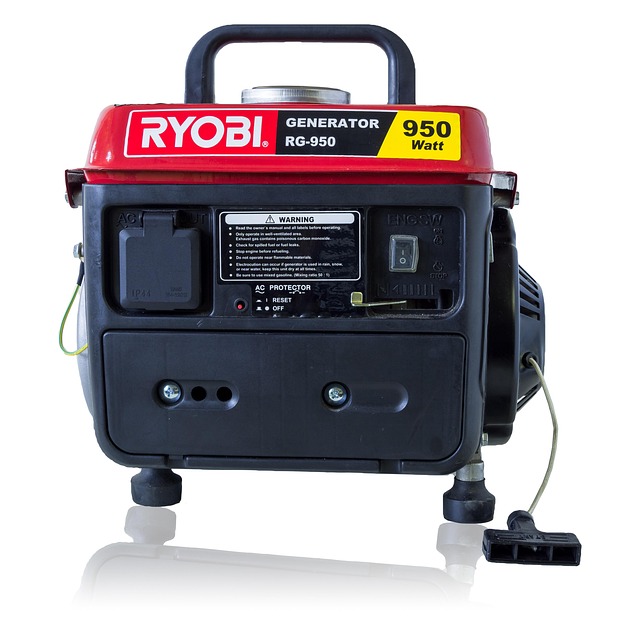Home Generators: Backup Power Made Easy
Home generators offer reliable backup power during outages, keeping essential appliances running and your family safe. From portable units to whole-house systems, discover how generators can provide peace of mind and energy security when you need it most.

What are the main types of home generators?
Home generators come in two primary categories: portable generators and standby generators. Portable generators are smaller, more affordable units that can be moved around as needed. They typically run on gasoline or propane and are ideal for powering a few essential appliances during short outages. Standby generators, on the other hand, are permanently installed outside your home and automatically kick in when the power goes out. These larger systems can power most or all of your home’s electrical needs and run on natural gas or propane.
How do generators work during power outages?
Generators operate on a simple principle: they convert mechanical energy into electrical energy. When the power goes out, the generator’s engine starts up, turning an alternator that produces electricity. This electricity is then fed into your home’s electrical system through a transfer switch. The transfer switch is a crucial safety component that prevents backfeeding, which could be dangerous to utility workers repairing power lines. For portable generators, you’ll need to manually start the unit and plug in your appliances, while standby systems activate automatically within seconds of detecting a power loss.
What makes standby systems effective for handling power cuts?
Standby generators are designed for seamless operation during power outages. They’re equipped with an automatic transfer switch that detects when utility power is lost and immediately switches your home’s electrical system to generator power. This process happens so quickly that you might not even notice the transition. Standby systems can run for extended periods, as long as they have a steady fuel supply. They’re also sized to handle most or all of your home’s electrical load, allowing you to maintain normal activities during an outage.
Which factors should influence your generator decision?
Several key factors come into play when choosing a home generator:
-
Power needs: Calculate the wattage required to run your essential appliances.
-
Fuel type: Consider availability and cost of gasoline, propane, or natural gas.
-
Installation requirements: Portable units are plug-and-play, while standby systems need professional installation.
-
Runtime: Determine how long you need the generator to operate without refueling.
-
Noise levels: Some generators are quieter than others, an important factor for residential areas.
-
Maintenance: All generators require regular maintenance, but some are more user-friendly than others.
What are some advanced features of modern home generators?
Today’s home generators come with a range of advanced features that enhance their functionality and ease of use. Many models offer remote monitoring capabilities, allowing you to check your generator’s status via smartphone apps. Some standby systems perform regular self-diagnostic tests to ensure they’re ready when needed. Inverter technology in portable generators provides cleaner power, making them safe for sensitive electronics. Additionally, some generators now come with CO (carbon monoxide) sensors that automatically shut off the unit if dangerous levels are detected, adding an extra layer of safety.
How much do home generators cost, and what options are available?
When it comes to home generators, costs can vary widely depending on the type, capacity, and features. Here’s a comparison of some popular generator options:
| Generator Type | Brand/Model | Capacity | Fuel Type | Estimated Cost |
|---|---|---|---|---|
| Portable | Honda EU2200i | 2,200W | Gasoline | $1,049 - $1,199 |
| Portable | Generac GP3500iO | 3,500W | Gasoline | $799 - $899 |
| Standby | Generac Guardian 7043 | 22kW | Natural Gas/Propane | $4,500 - $5,500 |
| Standby | Kohler 20RESCL | 20kW | Natural Gas/Propane | $4,800 - $5,800 |
| Whole House | Briggs & Stratton 40556 | 25kW | Natural Gas/Propane | $7,000 - $8,000 |
Prices, rates, or cost estimates mentioned in this article are based on the latest available information but may change over time. Independent research is advised before making financial decisions.
Investing in a home generator is a significant decision that can provide invaluable peace of mind during power outages. Whether you opt for a portable unit for basic backup or a whole-house standby system, understanding your power needs and the available options will help you make an informed choice. Remember to consider factors like fuel availability, maintenance requirements, and local regulations when selecting and installing your generator. With the right generator in place, you can keep your home running smoothly, even when the grid goes down.
The shared information of this article is up-to-date as of the publishing date. For more up-to-date information, please conduct your own research.




